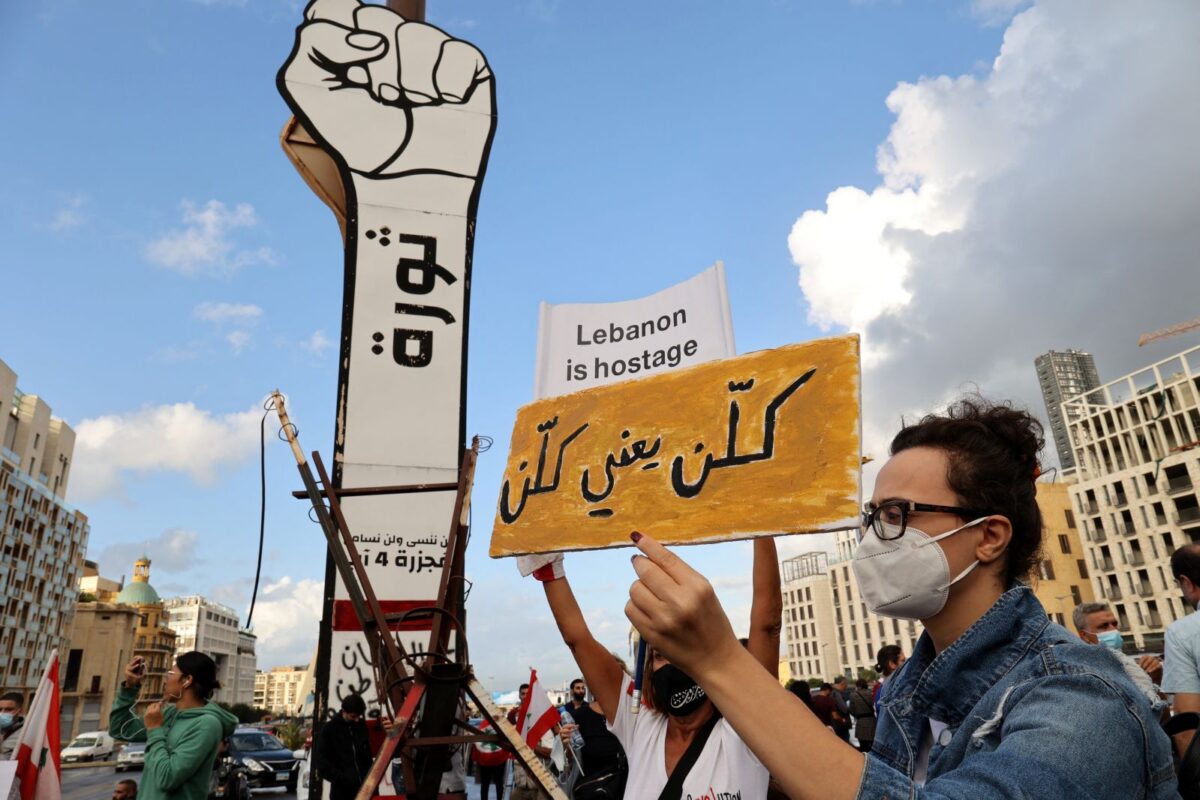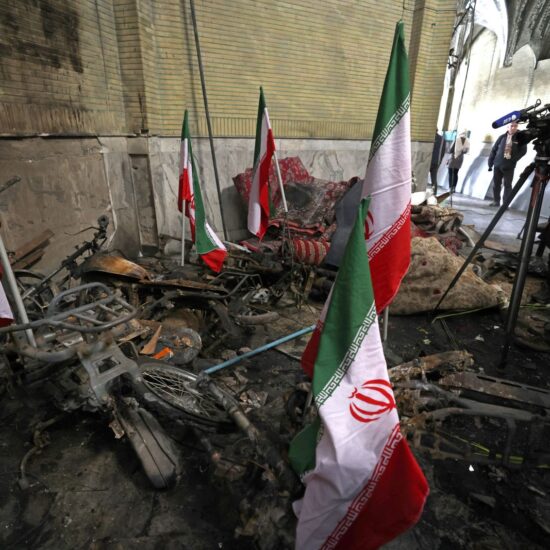
On October 17, 2019, thousands of Lebanese took to the streets and public squares against political corruption, sectarian power-sharing, and the worsening economic crisis. Nearly four years since the parliamentary elections in 2022, which witnessed the election of 13 “change MPS”, many Lebanese, particularly among the youth, have grown disillusioned. The once powerful slogans of anti-corruption, accountability, and secularism are now met with skepticism and doubt
What began as a wave of anger quickly evolved into a nationwide uprising that marked a turning point in Lebanon’s political and social consciousness. The movement shattered long-standing barriers of fear, although the revolution faced several challenges from state repression and violent crackdowns to co-optation efforts and systematic attempts to strip it of its true substance and transformative potential.
Despite all the obstacles, protestors did not back down. Lebanon witnessed extraordinary acts of resistance, from nationwide strikes and road blockages to acts of civil disobedience.
From the very first days, the authorities responded to the uprising with violent repression. Security forces used excessive force, arbitrary arrests, and media intimidation to silence dissent.
Protestors were beaten and dragged by security officers, while many activists were summoned and detained in an attempt to break the spirit.
Clashes and intimidation
Activists, journalists, and prominent figures in the uprising were subjected to threats and targeted killings. One of the most shocking cases was the assassination of Lokman Slim, who was known for his public criticism of the ruling elite.
Economic collapse
The Lebanese pound lost unprecedented value and prices soared, forcing many people to shift their focus from political activism to simply surviving day to day.
From protest to power
Years later, the impact of the October 17 uprising began to show in Lebanon’s political landscape. Opposition forces born out of the revolution established themselves as key players both in parliament and in the streets. A major turning point came with the election of a president and a government that adopted the revolution’s demands.
The corruption was not confined to one presidency or government; it was deeply rooted in Lebanon’s political system.
When the October 17 movement erupted, it captured the imagination of a population long yearning for change but skeptical it could ever happen. For weeks, hundreds of thousands of people filled streets and squares, blocking roads and demanding the downfall of the political elite. But after nearly two months, the movement began to lose momentum.
Without a unified leadership and clear political program, the movement struggles to maintain coherence.
Gradually, people began withdrawing from the streets. Political parties attempted to steer the movement towards their own goals. Traditional parties like the Lebanese Forces, Kataeb, and National Liberals tried to insinuate themselves into the revolutionary space.
By the 2022 parliamentary elections, the movement’s presence had shifted from the streets to the ballot box. Thirteen “change” MPs emerged, many of whom had been prominent figures in the uprising; however, internal divisions soon began to emerge, which led them to split into small groups, revealing the movement’s enduring struggle to transform protest energy into cohesive political power.
Six years later, the legacy of October 17 remains complex
The potential of the revolution has been tested by Lebanon’s enduring sectarian structures, economic collapse, and political fragmentation.
Some individuals who were highly involved in the October revolution and had participated in several street demonstrations, believe that the “Change” MPs have failed to deliver on the promises that brought them to power.
Rather than challenging the political establishment, they often aligned themselves with traditional sectarian parties.
For many, the parliamentary experience of the “Change” MPs has been disappointing, falling short of the transformative change they had pledged. As Lebanon heads towards the next parliamentary elections, voters will be watching closely to see whether these MPs will be given a second chance or whether public confidence in the “change” momentum has already faded.
Citizens voice
Rawad, 32 32-year-old math teacher from Bekaa, told NOW: “I still remember those early days in October 2019 like they happened yesterday.”
“Every weekend, I helped organize buses to Beirut so people from our towns could join the demonstrations. We believed we were part of something historic, that for once, our voices would matter and that the corrupt system could actually be challenged.” Said Rawad.
Six years later, Rawad, like many other individuals who had a renewed sense of hope when the MPs were elected in 2022, speaks with a tone that is full of disappointment and a feeling of betrayal.
Similarly, Allisar from Mount Lebanon, who was a university student at that time and was also heavily involved in arranging for groups to participate in the nationwide demonstrations, told NOW: “All the MPs entered parliament full of promises, but when it came to acting, most of them stood on the sidelines. They didn’t offer real solutions to the daily crises we face, and they were expected to oppose regressive taxes, push for fair distribution of economic burdens, and advocate for protecting depositors. Instead, they were often absent from critical economic debates or internally divided.”
Though the 13 “change” MPs entered parliament together in 2022, they quickly fragmented into smaller groups, often voting differently and lacking a shared strategy. Several MPs ended up aligning or cooperating with traditional parties, whether for tactical reasons or under political pressure.
This blurred their identity as genuine reformers and disappointed many supporters who expected them to stand firmly against sectarian power-sharing and clientelism.
Lack of effective acting?
On critical issues such as the presidential vacuum, judicial independence (especially regarding the Beirut port explosion investigation), and the worsening electricity and banking crises, the “Change” MPs were seen as lacking coordination, strategy, and influence.
Rodayna Raydan is a Lebanese-British journalist. You can follow her on Twitter @Rodayna_462
The views in this story reflect those of the author alone and do not necessarily reflect the beliefs of NOW.








